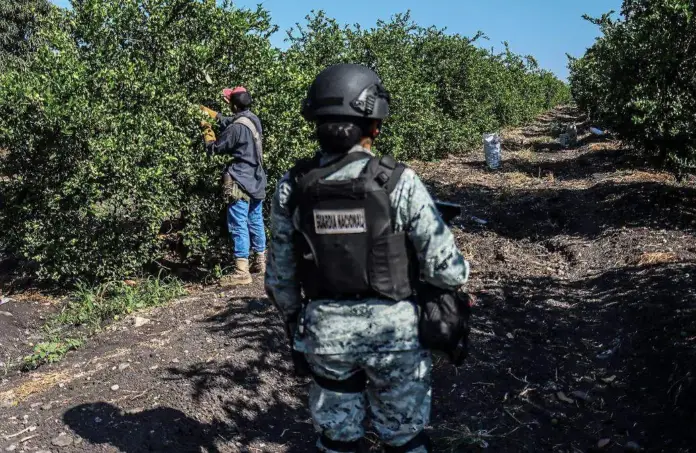In January and February, 1,809 cases of extortion were reported nationwide, the highest number since 2015 for that period, according to data from the Executive Secretariat of the National Public Security System (SESNSP).
In August 2024, when current President Claudia Sheinbaum Pardo was elected, she pledged that extortion would be a serious crime and would be prosecuted ex officio. This was in response to the strike by lemon producers in Michoacán, who were victims of organized crime. They are charged fees for each lemon they sell. However, the private sector points out that there is no uniform classification of the crime nationwide.
“One of the main obstacles to combating this crime is the lack of uniform classification in state criminal codes. In some states, it is classified as use of trust or the affected individuals are re-victimized, weakening investigations. Furthermore, the lack of coordination between state prosecutors’ offices and the Attorney General’s Office prevents effective responses,” the Employers’ Confederation of the Mexican Republic explained in a statement shared on March 23.
According to the Federal Government’s Security Strategy, reducing extortion is one of the federal government’s main objectives, along with neutralizing the drivers of violence and strengthening prevention.
For Erick Ruiz, a security expert and professor of National Security at the National Autonomous University of Mexico (UNAM), the Mexican government has focused on combating one aspect of the diversification of organized crime: drug trafficking, practically leaving the path open for extortionist criminals. “You’ll recall that during the previous six-year term, former President López Obrador identified extortion as the only crime for which they had failed to reduce the figure. While current efforts have been historic in some cases, they have been successful in many others. This same diversification of criminal activities is what prevents a single route to combating the same crime,” the specialist explains.
The expert gave as an example what happened on December 29, 2023, when an operation in Michoacán found recycled internet repeater antennas with material from government-owned telephone companies and forced citizens to pay for this illegal internet service.
“The approximately 5,000 people affected received threats to use this criminal group’s internet service. They were charged between 400 and 500 pesos a month,” Ruiz recalled.
.webp)
Security expert and analyst Javier Oliva also believes there is a lack of control over the sale of telephone lines and services in the country. “There is a lack of control over the sale of telephone lines,” he briefly told El Sol de México.
Meanwhile, Professor Ruiz believes there is no strategy that integrates the intelligence departments of each of Mexico’s security agencies, in addition to the military.
“There is no institutional strategy that involves the intelligence departments of Security and Citizen Protection, Defense, the Attorney General’s Office, and state prosecutors’ offices to intercept these extortion schemes,” said the UNAM professor.
Source: oem




